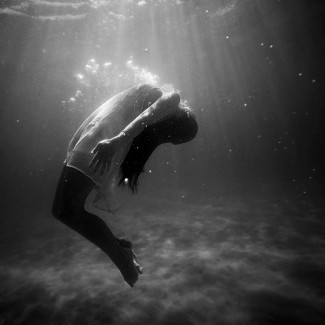Why We Believe Eating Disorder Lies
Some of us believe eating disorder lies. A teacher of mine likes to say that we all have an 18-year internship. That internship teaches us the models from which we view the world. These models of relationship, love, family, connection, etc., are the ones we blindly replicate unless something intervenes. For thousands of us, something did, in the form of an eating disorder (anorexia, bulimia, or binge eating disorder). We can either be upset about that, or we can see it as a sign that something is awry. We have the opportunity to take a closer look at eating disorder lies, if we choose.
There Are Reasons We Believe and Act on the Eating Disorder Lies
We all have reasons we do the things we do, which means there are reasons why the eating disorder developed.
People with eating disorders tend to be intelligent, proving that having these thoughts and behaviors doesn’t mean we’re dense. Eating disorders carry barbs of shame and guilt, so we deny, or attempt to hide, the signs. Usually, we know it’s not healthy, yet we feel compelled and are at the eating disorder’s mercy, so we believe the eating disorder lies.
If we’re so smart then why do we do these things to ourselves?
The eating disorder has served a purpose. Whatever issues the eating disorder previously helped us cope with, there’s no denying that it’s a powerful coping mechanism (Using Coping Skills In Eating Disorder Recovery). The problem is that an eating disorder is a destructive coping mechanism that takes on a life of its own.
Pretty soon, we find ourselves trying to survive the eating disorder and meet its demands in hopes of a moment of temporary peace (How To Put Your Eating Disorder Recovery First).
The Eating Disorder Lies And How They Once Helped Us Cope
 The eating disorder has helped us cope with stress (of anything we didn’t want to, or didn’t know how to, deal with). We thought that it could provide us a sense of predictability, and, thus, control, but the eating disorder lies.
The eating disorder has helped us cope with stress (of anything we didn’t want to, or didn’t know how to, deal with). We thought that it could provide us a sense of predictability, and, thus, control, but the eating disorder lies.
The eating disorder is unstable and unpredictable. One minute, it’s our best friend, the next, a vicious dictator. One minute, it’s caressing our cheeks, the next, it’s digging its talons in our back. It’s the opposite of what we were looking for.
We were seeking something to keep us from drowning, but we’re now lost at sea with cruel whispers whipping in the wind.
The Eating Disorder's Lies Become Normal
Would you ever speak to a friend the cruel way your eating disorder whispers in your ear? I’ll put my bets on "no." So, why do we allow the eating disorder to talk to us this way?
We’ve grown so conditioned to the cruel whispers that we don’t question them anymore. Instead, we accept them as truth (Negative Thoughts Distort Your Reality).
Yes, I am fat and worthless. Yes, I should run miles and not eat dinner. Yes, I am a failure. Yes. I believe.
We Don’t Have to Believe Eating Disorder Lies
The fantastic news is that on the path to recovery, we can learn to rewrite these thoughts. We can learn to challenge eating disorder lies. We can develop healthy coping strategies that don’t involve the eating disorder. If you’re not sure how to begin, a licensed therapist with a specialty in eating disorders can help (Eating Disorders Therapy: Psychotherapy and Group Therapy).
Today and this day forward: Question every eating disorder lie it has ever told you.
You are brave. You can recover and have the life you dream of, free from the eating disorder.
Watch This Eating Disorder Lies Video
APA Reference
Zoccolante, Z.
(2016, February 10). Why We Believe Eating Disorder Lies, HealthyPlace. Retrieved
on 2026, March 5 from https://www.healthyplace.com/blogs/survivinged/2016/02/why-we-believe-the-eds-lies